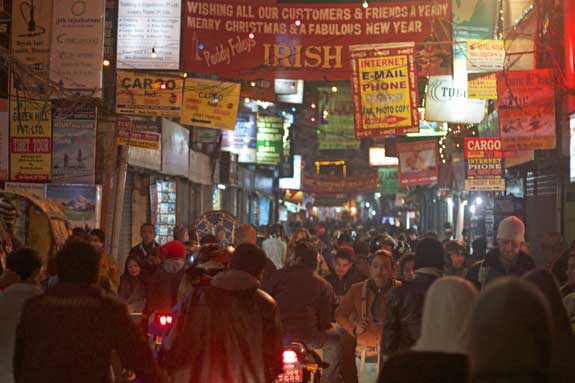Pharmacies and prescriptions for expats: Good news and bad news

This is a big topic that I know many people are interested in, so I thought I’d at least cover the basics. I’m not an expert, but I have visited pharmacies in many different parts of the world and I’ve done a decent amount of research on the topic. Also, my brother works for pharmaceutical companies in Europe on the research side of things, and he has enlightened me on some of the inside scoop.
Rich countries vs all the other ones
It’s yet another situation where there is a large divide between the US, Canada, Europe, Australia etc, and the countries that people often label as “developing.” The United States, and to a lesser extent Germany, ends up paying for most new drugs to be developed, and the rest of the world benefits. Regulations are also most strict in the richest countries, so if you need a drug you’ll need a prescription from the doctor, and if you are unlucky you might be paying a fortune for the drug itself.
How pharmacies work in developing countries
If you are considering moving to Asia or South America or Africa or even many countries in eastern Europe, you will probably find that pharmacies work in a different way, and this is mostly good news. For most mundane drugs you don’t need a prescription and the drugs are very cheap as well. Obviously this can and does vary from one country to another, but I have seen that pharmacies tend to have a different role in these countries.
Pharmacist as primary medical counselor
When I first learned that prescriptions from doctors aren’t needed in most of the world I wondered why, and my brother (who works in the industry) explained that in most of the world people can usually afford a doctor visit or drugs, but rarely both. So let’s say you make US$100 a month in Vietnam and you have some symptoms that are worrying. If you had to pay a doctor $20 to tell you to take $20 worth of pills, you might skip it because that’s two weeks pay. But if the pharmacist can tell you about the bills for free, it’s more likely you’ll get treatment.
So in effect, in most of the world, well-trained pharmacists are the first line of defense in medical treatment. If you have symptoms that you want advice about, you go to the pharmacist and describe them, and they will give you a prescription if appropriate, or tell you to visit a doctor if you need tests or a deeper consultation.
You could say that in a perfect world there would be highly trained doctors in every village and someone else paid all the bills, but it’s not a perfect world so this system is in place as something realistic. It works pretty well, and even expats can benefit with free advice and cheap prescription medications.
Not everything is available everywhere, of course
As wonderful as it is that you can get free advice and cheap drugs in these countries, it’s not perfect. For one thing, any drug that is commonly used recreationally (Xanax, opiates etc) are controlled so you do need a prescription. So not only can’t you buy happy pills cheaply without a doctor note, but if you do need something in that category legitimately, you’ll need to jump through the normal hoops.
The other unsurprising thing to be aware of is that not all drugs are available in all countries. For example, I use an antibiotic to treat a skin problem I sometimes have, and I was able to get it cheaply in 6 or 7 countries in Asia and Europe, but when I asked for it here in Serbia, they told me they don’t stock it at all. Most likely I could get something similar if I did enough research and shopping around, but this is a common drug (or so I assumed) so I was caught off guard.
The point is, it’s a mistake to assume that the exact thing you need will be available anywhere you go. Especially if you require something a bit rare, it’s wise to bring plenty with you if you can’t verify that it’s available there.
